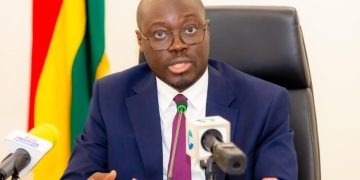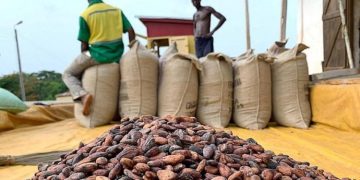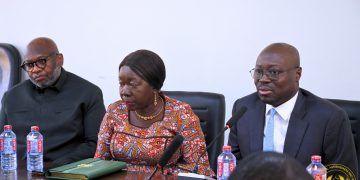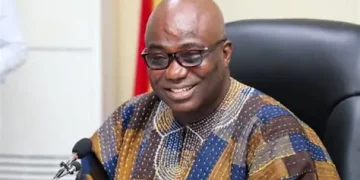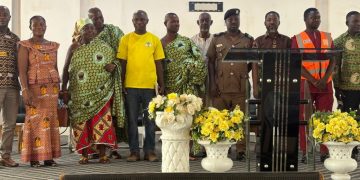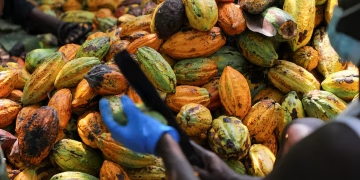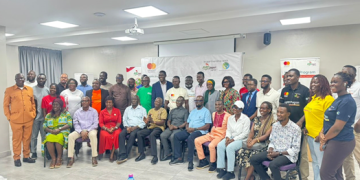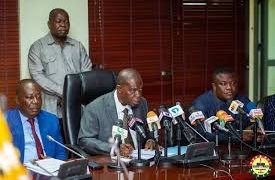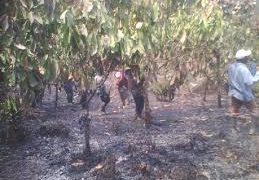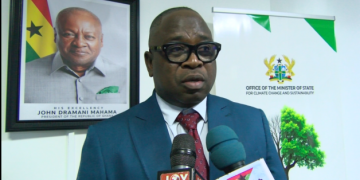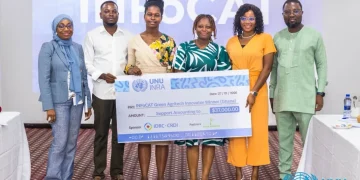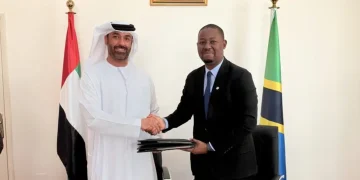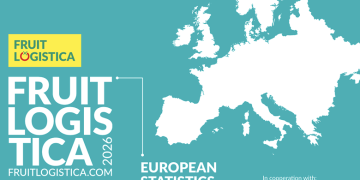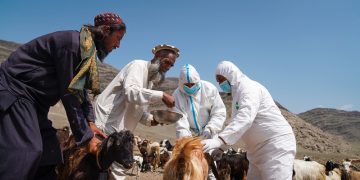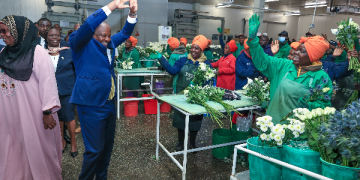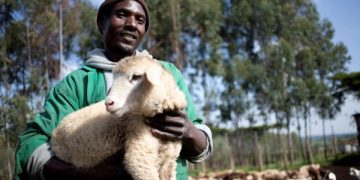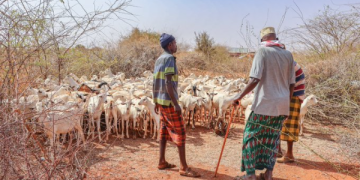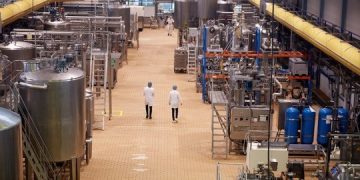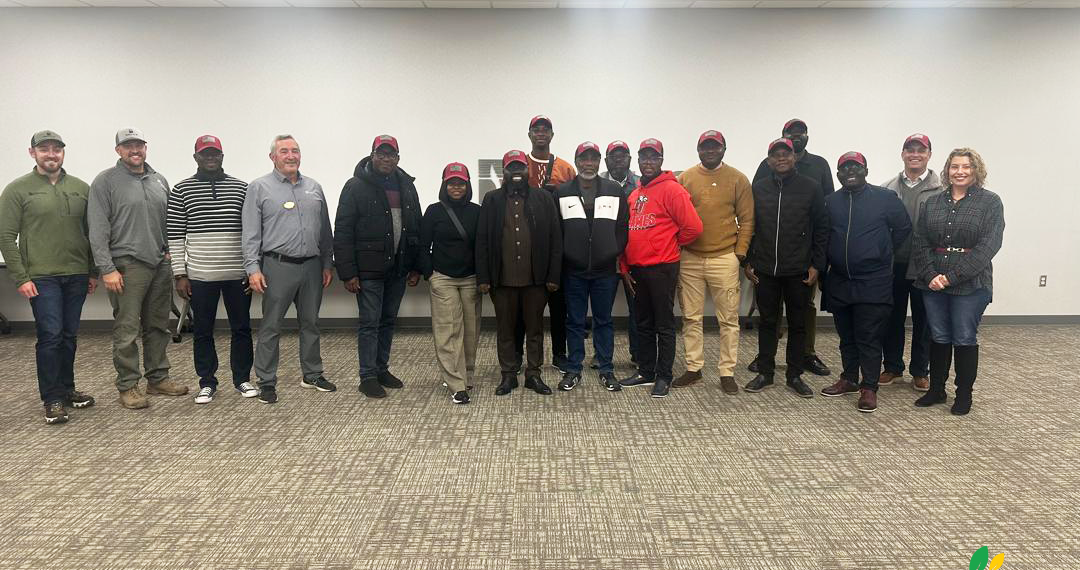The Ghana–Nebraska Agribusiness Growth and Trade Relations Chamber (GNEBCham) in partnership with Ecosyntra, has successfully hosted the first-ever Ghana–Nebraska AgriWater Summit (GHASKA 2025), further strengthening the growing collaboration between Ghana and the State of Nebraska, USA.
Held under the theme “Cultivating Solutions across Continents,” the summit formed part of a series of sector-focused business and investment matchmaking initiatives designed to deepen and expand trade, innovation and agribusiness relations between the two regions.
The Ghana–Nebraska AgriWater Summit brought together senior government officials, academic leaders, industry experts and agribusiness stakeholders from both Ghana and Nebraska. The event provided a high-level platform for dialogue, collaboration and knowledge exchange on key areas such as irrigation, climate-smart agriculture, agritech innovation and agricultural education.
Speaking at the opening of GHASKA 2025, Alberta Nana Akyaa Akosa, Co-Founder of the Ghana–Nebraska Agribusiness Growth and Trade Relations Chamber and Executive Director of Agrihouse Foundation, emphasized that the summit represents a major milestone in advancing sustainable agribusiness growth between the two regions.
According to her, GHASKA 2025 not only celebrates the achievements of Ghana–Nebraska cooperation but also sets the stage for practical and long-term solutions to agricultural challenges shared by both regions. “Through platforms like this, we are cultivating real partnerships, ones that bring technology, expertise and investment together to drive progress in irrigation, innovation, and sustainable food systems,” she stated.
The summit featured insightful institutional presentations, industry visits, business to business meetings, and interactive sessions focusing on water management systems, agri-technology transfer and joint research collaborations between universities in Ghana and Nebraska. Participants also explored potential partnerships in agribusiness financing, mechanization and trade facilitation.
GHASKA 2025 served as a vibrant space to identify actionable opportunities, strengthen mutual learning and build enduring bridges across continents. By uniting public and private sector actors, the summit has paved the way for sustainable agricultural transformation, resilient food systems and expanded trade relations between Ghana and Nebraska.
Nebraska: A Living Laboratory for Agricultural Excellence
Leading Ghana’s 15-member delegation were Hon. John Setor Dumelo, Deputy Minister of Food and Agriculture and Dr. Peter Boamah Otokunor, Director of Presidential Initiatives in Agriculture and Agribusiness at the Presidency, Republic of Ghana.
The delegations working business trip to Nebraska offered a profound lesson in the scale, science, and business of modern food production. It is a diverse powerhouse built on a foundation of natural resources and driven by innovation, seamlessly blending traditional farming with sophisticated agribusiness.
The 15-member Ghanaian delegation embarked on a comprehensive learning mission at the University of Nebraska–Lincoln (UNL), The Daugherty Water for Food Global Institute and other agricultural centers of excellence. Their engagements focused on water resource management, livestock productivity, irrigation systems and agricultural technologies that drive Nebraska’s world-class farming success.
Reflecting on these experiences, the Deputy Minister of Food and Agriculture, Hon. Dumelo stated:
“Nebraska’s agricultural ecosystem offers valuable lessons for Ghana. From irrigation technologies to livestock management, we are witnessing practical models that can transform our systems back home. This partnership is a learning journey that will deliver long-term benefits to Ghanaian farmers and agripreneurs.”
Building Knowledge through Academic Collaboration
A major highlight of The Ghana–Nebraska AgriWater Summit (GHASKA 2025) was the development of a strategic academic partnership between Ghanaian universities and the University of Nebraska–Lincoln.
The discussions laid the foundation for joint research programs, faculty and student exchanges, curriculum development and innovation partnerships focused on water management, agricultural and agribusiness modernization.
Dr. Peter Boamah Otokunor, Director of Presidential Initiatives in Agriculture and Agribusiness at the Presidency emphasized the role of knowledge in driving agricultural change,
“We cannot modernize agriculture without a strong foundation of knowledge and innovation. This partnership with Nebraska will strengthen our academic systems, advance research, and inspire a new generation of agricultural leaders in Ghana.”
A Bridge for the Future
Beyond academia, The Ghana–Nebraska AgriWater Summit (GHASKA 2025) strengthened business-to-business and institutional relationships.
The Ghanaian delegation engaged with the Nebraska Secretary of State’s Office, Mayor of the City of Seward and agribusiness firms such as PetSource by Tyson Foods, Beck’s Hybrid Seeds and Farmers’ Cooperatives. These engagements offered valuable insights into Nebraska’s cooperative models, agritech systems and community-based approaches to sustainable food production.
Senator Ken Schilz, former Nebraska State Senator and Co-Founder of Ghana–Nebraska Agribusiness Growth and Trade Relations Chamber (GNEBCham), described the collaboration as a bridge for shared prosperity:
“This partnership is built on mutual respect and shared purpose. Nebraska has the infrastructure and experience, while Ghana brings energy, innovation, and market potential. Together, we’re building a bridge that connects two agricultural powerhouses for the future of global food security.”
Opportunities for Ghanaian Businesses
The Ghana–Nebraska AgriWater Summit (GHASKA 2025) provided a vibrant space for knowledge exchange, investment networking and innovation dialogue.
Through sessions focused on agricultural technology, irrigation, public–private partnerships and renewable energy, and education, participants explored new opportunities for trade, research, and agribusiness expansion.
Field experiences such as the Water and Harvest Field Tour and Innovation Breakout Tour showcased Nebraska’s agritech solutions, offering practical insights that Ghanaian agripreneurs aim to replicate locally.
Cecil Sunkwa-Mills, Vice President of GNEBCham described GHASKA 2025 as a movement rather than an event:
“Our goal is simple, impactful, truthful and well-transacted partnerships. GHASKA 2025 is not just a Summit; it’s a platform to bridge agribusiness ecosystems, strengthen trade relations and empower the next generation of agricultural innovators in both Ghana and Nebraska.”
Impact and the Road Ahead
The outcomes of GHASKA 2025 are already unfolding. Several Memoranda of Understanding (MoUs) and partnership frameworks are being finalized between Ghanaian and Nebraskan institutions.
These steps reflect GNEBCham vision to convert knowledge exchange into impact, enhancing productivity, promoting youth capacity-building and fostering sustainable agricultural growth.
About the Ghana–Nebraska Agribusiness Growth and Trade Relations Chamber (GNEBCham)
The Ghana–Nebraska Agribusiness Growth and Trade Relations Chamber (GNEBCham) is the international representative body of select Nebraska senators, farmers, agribusinesses and Ghanaian partners working together to create an enabling environment for agribusiness development and trade between Ghana and Nebraska and beyond.
GNEBCham mission is to foster economic growth, strengthen trade ties and develop sustainable business markets among Ghanaian and Nebraskan value chain enterprises.
With a growing membership of over 100 companies, the Chamber serves as a strategic hub for information exchange, agribusiness development, and investment facilitation, offering platforms for cross-border partnerships, innovation, and sustainable food system growth.
The Chamber continues to stand at the forefront of fostering impactful agribusiness and trade relations, promoting initiatives like the Ghana–Nebraska AgriWater Summit as platforms to deepen cooperation, build capacity and shape a future of mutual growth.












